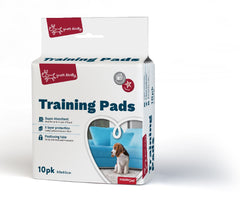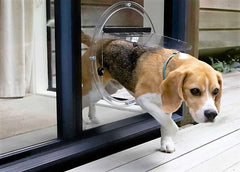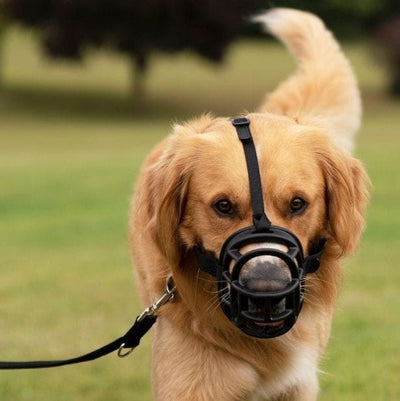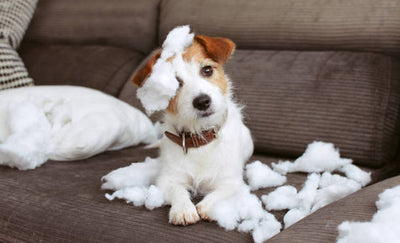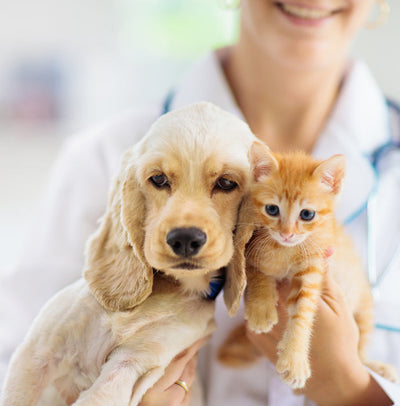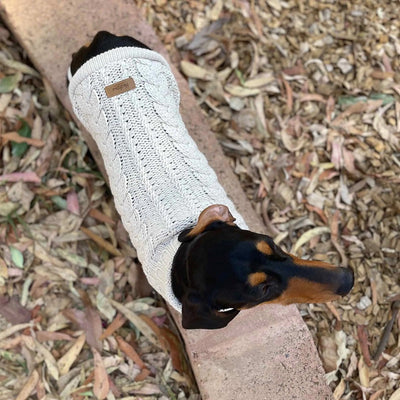
If you're a dog owner, you know that accidents can happen, and sometimes those accidents involve your furry friend leaving a mess inside your home.
But why do dogs sometimes choose to poop indoors instead of outside where they're supposed to? Here are the top ten reasons why this might be happening, and some tips to prevent it from happening again.
Why Is My Dog Pooping in the House?
There are a variety of reasons why a dog may start pooping inside the house. It could be due to a health issue, a change in their routine or diet, or a change in their home environment. It's important to identify the root cause and address it in order to prevent further accidents. If your dog is suddenly having accidents inside the house, it's important to first rule out any medical issues. Schedule an appointment with your veterinarian to ensure there are no underlying health problems causing this behaviour.
Lack of Proper Toilet Training.
One of the most common reasons why dogs may be pooping inside the house is due to a lack of proper training. If your dog hasn't been properly trained to go outside to do their business, they may not understand that it's not okay to go inside. It's important to establish a routine and consistently take your dog outside to the same spot to do their business. Positive reinforcement, such as treats and praise, can also help reinforce good behaviour. You may need to revisit toilet training from when your dog was a puppy again to get through this phase.
Medical Issues or Illness.
Another reason why dogs may be pooping inside the house is due to medical issues. If your dog is experiencing diarrhea or other digestive problems, they may not be able to hold it in until they can go outside. Additionally, older dogs or dogs with mobility issues may struggle to make it outside in time. If you suspect a medical issue may be causing your dog to poop inside, it's important to consult with your veterinarian to rule out any underlying health problems.
Anxiety or Stress.
Dogs can experience anxiety or stress just like humans, and this can lead to them pooping inside the house. Common triggers for anxiety or stress in dogs
include changes in routine, loud noises, separation from their owner, or being in a new environment.
If you suspect your dog's indoor pooping is due to anxiety or stress, it's important to address the root cause and provide them with the necessary support and training to help them feel more comfortable and secure.
The use of anxiety collars, sprays and diffusers are effective at helping your dog with anxiety.
Inconsistent Feeding Schedule.
One common reason why dogs may poop inside the house is due to an inconsistent feeding schedule. Dogs thrive on routine and having a set feeding schedule can help regulate their bowel movements. If you are feeding your dog at different times each day, they may not be able to hold their bowel movements until they are taken outside.
inconsistent feeding schedule. Dogs thrive on routine and having a set feeding schedule can help regulate their bowel movements. If you are feeding your dog at different times each day, they may not be able to hold their bowel movements until they are taken outside.
To prevent this, establish a consistent feeding schedule and stick to it as much as possible. If you are away or at work and are unable to maintain mealtime routines, invest in an automated pet meal feeder that allows you to schedule a feeding time. This will help your dog develop a regular bathroom routine and reduce the likelihood of accidents inside the house.
Lack of Access to the Outdoors.
Another reason why dogs may poop inside the house is due to a lack of access to the outdoors. If your dog is not given enough opportunities to go outside and relieve themselves, they may have accidents inside the house. This can be especially problematic for dogs that are left alone for long periods of time without access to a yard or outdoor space. To prevent this, make sure your dog has regular access to the outdoors and take them for walks or playtime outside as often as possible. If you are unable to provide outdoor access, consider hiring a dog walker, using indoor potty training methods or installing a dog door.
Intestinal Parasites
Dogs may sometimes have accidents and poo inside the house due to medical conditions that cause inflammation of their intestines or an increased sense of urgency. One of the most common causes of gastrointestinal disease in dogs is the presence of intestinal parasites, such as worms. Ensure your dog's worming treatments are up to date
Noise Phobia and Outdoor Stressors
One common cause relating to dogs using your house as a toilet is anxiety or  fear triggered by external factors such as loud noises from passing vehicles, barking dogs, thunder, or shouting people. Some dogs with a more nervous disposition are particularly susceptible to these triggers and may feel more comfortable doing their business inside the house.
fear triggered by external factors such as loud noises from passing vehicles, barking dogs, thunder, or shouting people. Some dogs with a more nervous disposition are particularly susceptible to these triggers and may feel more comfortable doing their business inside the house.
Consider using a combination of anxiety treatments and a thundershirt wrap. This is an effective drug free alternative for treating dogs suffering from anxiety. The comfortable design applies a gentle, constant pressure that has a dramatic calming effect on dogs.
Change in Routine
Dogs are creatures of habit and thrive on routine. When their daily schedule is disrupted, such as a change in feeding or walking times, it can cause confusion and anxiety. This can lead to accidents inside the house, even if the dog has been previously house-trained. Additionally, new stressors or changes in the environment can also contribute to setbacks in potty training. It's important to be patient and consistent with your furry friend to help them adjust to any changes and prevent accidents.
Age-Related Issues
There are a few reasons why dogs may start to have accidents inside the house, even if they were previously well-trained. One common cause is age-related cognitive decline, which can lead to forgetfulness and confusion. As dogs get older, they may start to show signs of dementia, such as increased anxiety, pacing, and house-soiling. It's important to be patient and understanding with your furry friend during this time, and to work with your veterinarian to manage any underlying health issues that may be contributing to the problem.
Change in Diet
Dogs may sometimes poop inside the house due to a sudden change in their diet, which can cause digestive issues. While dogs may have a reputation for eating just about anything, their stomachs can be sensitive to changes in their food. To avoid accidents, it's important to introduce new foods gradually and monitor your dog's reactions. Remember that transitioning your dog to a new food can take up to a month!
How to Stop Your Dog From Pooping in the House
It's important to identify the root cause and address why your dog is defecating inside and manage it through positive reinforcement training and possibly consulting with a veterinarian. If you have ruled out any health related issues, we recom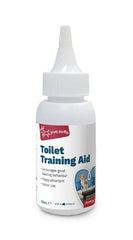 mend implementing the following practices:
mend implementing the following practices:
- Make sure your dog has regular toilet breaks outside at key times such as after eating or drinking, first thing in the morning, and last thing at night.
- Don't change their diet for now (unless your vet advises to)
- Utilise an anxiety diffuser, these can help settle any anxious behaviour
- Keep a routine for all activities, including mealtimes
- Clean the area thoroughly with a special pet cleaning enzyme product
- Use puppy training pads in areas such as the back door
- Use a puppy training attractant in one area outside to encourage your dog to toilet here
© weknowpets 2023


